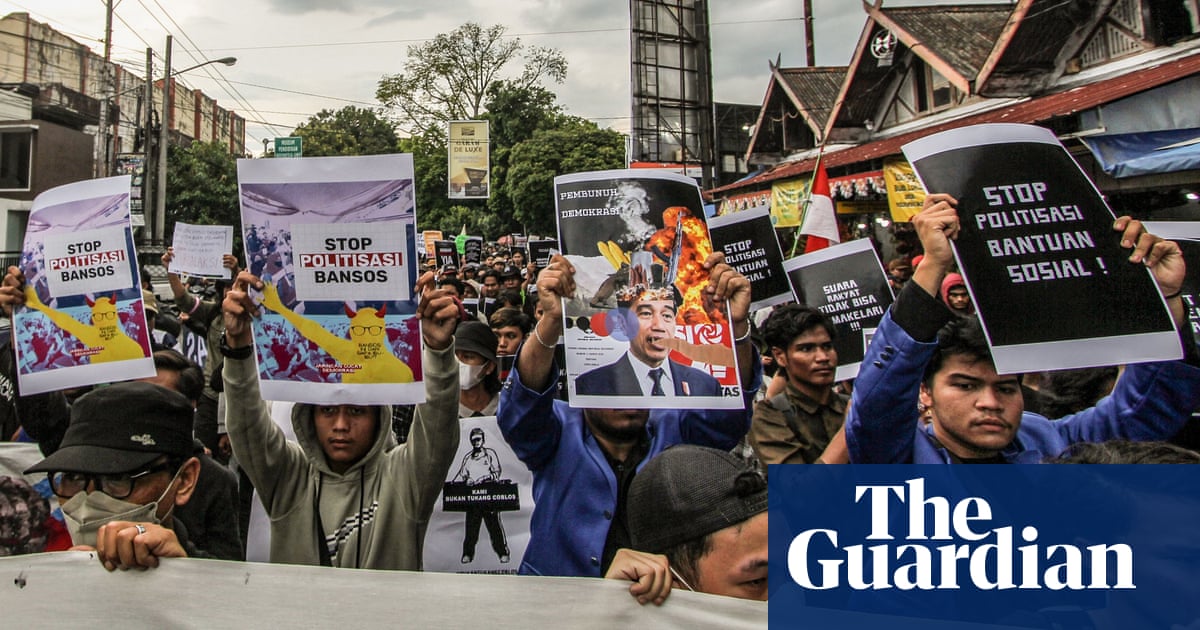Indonesian President Joko Widodo is facing mounting criticism over alleged interference in the country’s looming elections, as the country prepares to hold the world’s biggest single day vote.
More than 200 million people are eligible to vote in Indonesia’s elections on Wednesday, in which the country’s next president will be selected, as well as future executive and legislative representatives at all administrative levels.
Prabowo Subianto, 72, a former military general and the incumbent defence minister, is leading the polls. Trailing behind him in surveys are Anies Baswedan, the former governor of Jakarta, and Ganjar Pranowo, the former governor of Central Java.
Critics say Prabowo’s campaign has unfairly benefited from the resources and backing of the president, also known as Jokowi.
The presidential office has denied that Jokowi interfered in the vote and he has not explicitly endorsed Prabowo. However, the defence minister is running on a joint ticket with Jokowi’s son, vice-presidential candidate Gibran Rakabuming Raka – an arrangement only possible after a controversial ruling by the constitutional court, which is headed by his uncle Anwar Usman, created a legal loophole.
Jokowi has been accused of using his clout and government resources to boost Prabowo, who has promised to continue his policies. A documentary, Dirty Vote, directed by a prominent Indonesian investigative journalist, Dandhy Laksono, which accuses Jokowi of using state officials and funds to aid Prabowo’s campaign, went viral after its release on Sunday, and has been viewed millions of times.
Habiburokhman, deputy chair of Prabowo’s campaign team, described the documentary as slanderous, saying it was “very assumptive and very unscientific”.
Prabowo, a former special commander, is a controversial figure who is dogged by allegations of human rights abuses. He was dismissed from the military amid allegations he was involved in the kidnapping and torture of pro-democracy activists in 1997 and 1998, and is accused of rights abuses in Papua and East Timor. Prabowo has denied wrongdoing and has not been prosecuted over the claims.
On Monday, hundreds of students and activists held protests, accusing Jokowi of abusing his power to help Prabowo’s campaign. Students gathered in Yogyakarta on Java island, banging bamboo instruments and holding posters painted with slogans like “bring Jokowi and his cronies to justice”, Reuters reported.
Muhammad Waffaa Kharisma, a researcher at the Jakarta-based Center for Strategic and International Studies, said the election had become a test of “the boundaries of democracy”.
Jokowi’s support for Prabowo has had a big impact on the latter’s campaign, he added. “Jokowi has a high approval rating and he was a popular figure even during Covid, which is a time when a lot of governments and countries are being pressured by the populace,” he said.
Indonesian presidents are allowed to campaign for future candidates, though they must not use state funds to do so, and it is unusual for outgoing leaders to do so.
Surveys suggest Prabowo has a strong lead, with polls released last week projecting that he could secure more than 50% of the votes on Wednesday – a requirement to win. Candidates are also required to win at least 20% of the vote in at least half of the country’s 38 provinces. Without this, the vote will go to a second round.
Prabowo, who has projected a much softer image in recent years, is running to be president for the third time, having lost against Jokowi in 2014 and 2019.
Prof Burhanuddin Muhtadi, executive director of Indonesia’s independent public opinion research institute, Indikator Politik Indonesia, said that support for Prabowo has continued to increase, but that there was still a possibility that the vote would go to a second round.
Voter turnout, especially among younger voters would be a crucial factor, he said.
“A decent turnout level among young voters will certainly help Prabowo to win the election outright in just one-round. Any significantly weak turnout rate among young voters would present a significant challenge especially if the voter turnout for Anies and Ganjar supporters is higher,” he added.
